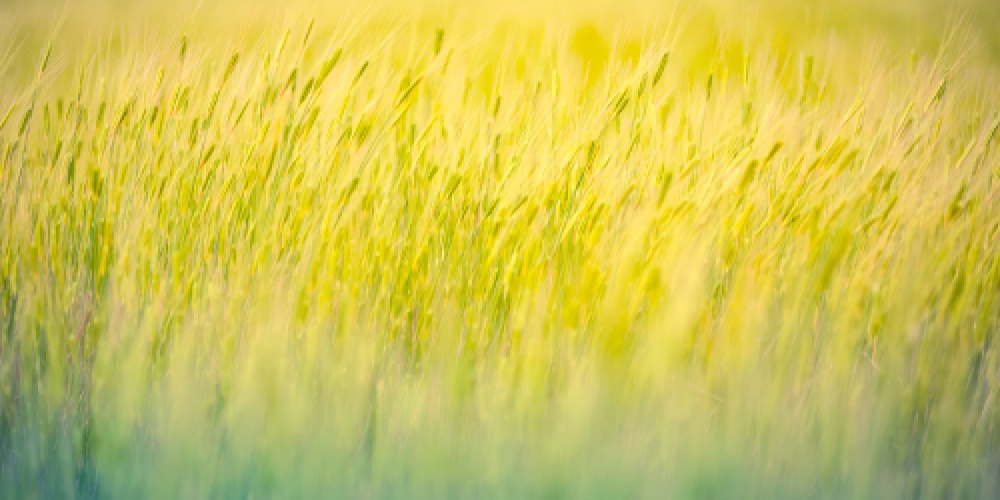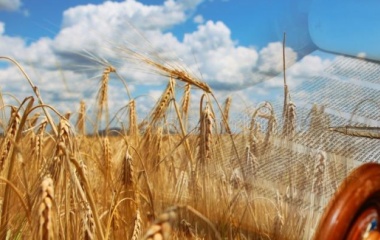
It is the omer, a measure of barley, that unites the Biblical holidays of Pesach and Sukkot. With no calenderic date Shavuot occurs on the day after the counting of seven weeks “from the day on which you bring the omer, sheaf, of elevation offering (Vayikra 23:15).
This omer, this little measure of grain, contains within it the essence of Shavuot. We first hear of the omer in parshat Beshalach regarding the manna. “This is what G-d has commanded: Each household shall gather as much as it requires to eat—an omer to a person for as many of you as there are; each household shall fetch according to those in its tent” (Shemot 16:16). The omer taught the newly freed slaves that G-d is the source of our sustenance[1]. With no hoarding allowed – any excess gathered over one omer would spoil – the Jewish people were to the learn this lesson each and every day. It is G-d, day in and day out, Who provides for us.
While this lesson was easier learned in the desert, where food literally fell from heaven, it was a lesson for all times and places. “This is what G-d has commanded: Let one omer of it be kept throughout the ages” (Shemot 16:32). While the Torah stresses the link to the desert – “in order that they may see the bread that I fed you in the wilderness when I brought you out from the land of Egypt” – the message is to resonate “throughout the ages”. While food no longer fell from heaven once the Jewish people arrived in Israel, water did. Unlike Egypt, where the Nile provided all of one’s needs, the success of the harvest in Israel was out of one’s hands. One could work day and night but if nature – i.e. G-d’s manifestation in this world – did not co-operate, one was in big trouble, with no guarantee that one would not literally starve to death.
It is through the omer that the Jewish people for the very first time are introduced to shabbat. “On the sixth day they gathered double the amount of food, two omers for each; and all the princes of the community came and told Moshe. He said to them, ‘This is what the Lord said, 'Tomorrow is a day of rest, a holy sabbath of the Lord. Bake what you would bake and boil what you would boil; and all that is left put aside to be kept until morning” (Shemot 16: 22-23). We do not need to gather on shabbat because whether we work six or seven days a week it is G-d Who provides for us[2].
The omer next appears in the context of the counting of the omer for seven nervous weeks between Pesach and Shavuot. Each and every day, the farmer, awaiting the first stalks of wheat, would nervously count the omer praying that G-d would ensure a bountiful crop.
The omer is the mechanism through which G-d provides man’s sustenance. As we are G-d’s partner, the omer must also be the method by which we actualize our divine image and provide food for others. This brings us to the third and final time the omer appears in the chumash. “When you reap the harvest in your field and you forget an omer in the field, do not turn back to get it; it shall go to the stranger, the fatherless, and the widow—in order that the Lord your God may bless you in all your undertakings” (Devarim 24:19). The omer begins as G-d's gift to man and ends as man's gift to man. In between, we count the omer and pray that G-d will provide enough for us to share with others.
Shavuot is centred around the omer, the omer that one shares with others. The Torah concludes the description of the holiday of “Shavuot” in a most instructive way. “And when you reap the harvest of your land, you shall not reap all the way to the edges of your field, or gather the gleanings of your harvest; you shall leave them for the poor and the stranger: I am the Lord your God” (Vayikra 23:22). This verse is an almost word for word repeat of what the Torah had instructed in parshat Kedoshim (Vayikra 19:9), the immediately prior sidrah – some 150 verses earlier.
Apparently, the mitzvot of Leket and Peah are so fundamental to the holiday of Shavuot that the Torah repeats the verse pretty much verbatim. What appears so unnecessary is so important. As to the third of the harvest mitzvot that of shichecha, leaving that which we forgot for the poor, that is the subject of the omer in the book of Devarim.
Our Sages well understood that the message of Shavuot is that of sharing with others – that is the essence of Torah. Hence the beautiful custom to read Megillat Rut on Shavuot, not to learn any new laws but rather “to teach the extent of the good reward for those who perform kindness” (Rut Rabba 2:14).
[1] In a fascinating comment, Rav Ephraim Lunshitz, early 17th century rabbi of Prague and great homiletical writer, argues that “the main reason for the prohibition of interest is because it erodes the trait of trust [in G-d]. Anyone engaged in business has his eyes lifted towards God, since he is in doubt whether he will make a profit or not. But one who gives with interest has his profit known and designated. So he will rely on his surety and remove his heart from G-d. And the borrower also transgresses the negative commandment because he causes the creditor to sin and erodes his trait of trust. This is known from [observing] those who lend with interest. Most of them have little faith, and are stubborn-hearted and distant from charity because of their lack of trust in G-d. This is the reason for the prohibition of interest in every place” (Kli Yaka, Vayikra 25:36).
[2] While I would hope this not be said, say it we must. G-d helps those who help themselves and it is forbidden to rely on G-d to provide sustenance, or as our Sages state “one may not rely on miracles”.
I want to thank Rabbi Menachem Leibtag on whose teaching much of the above is based.



